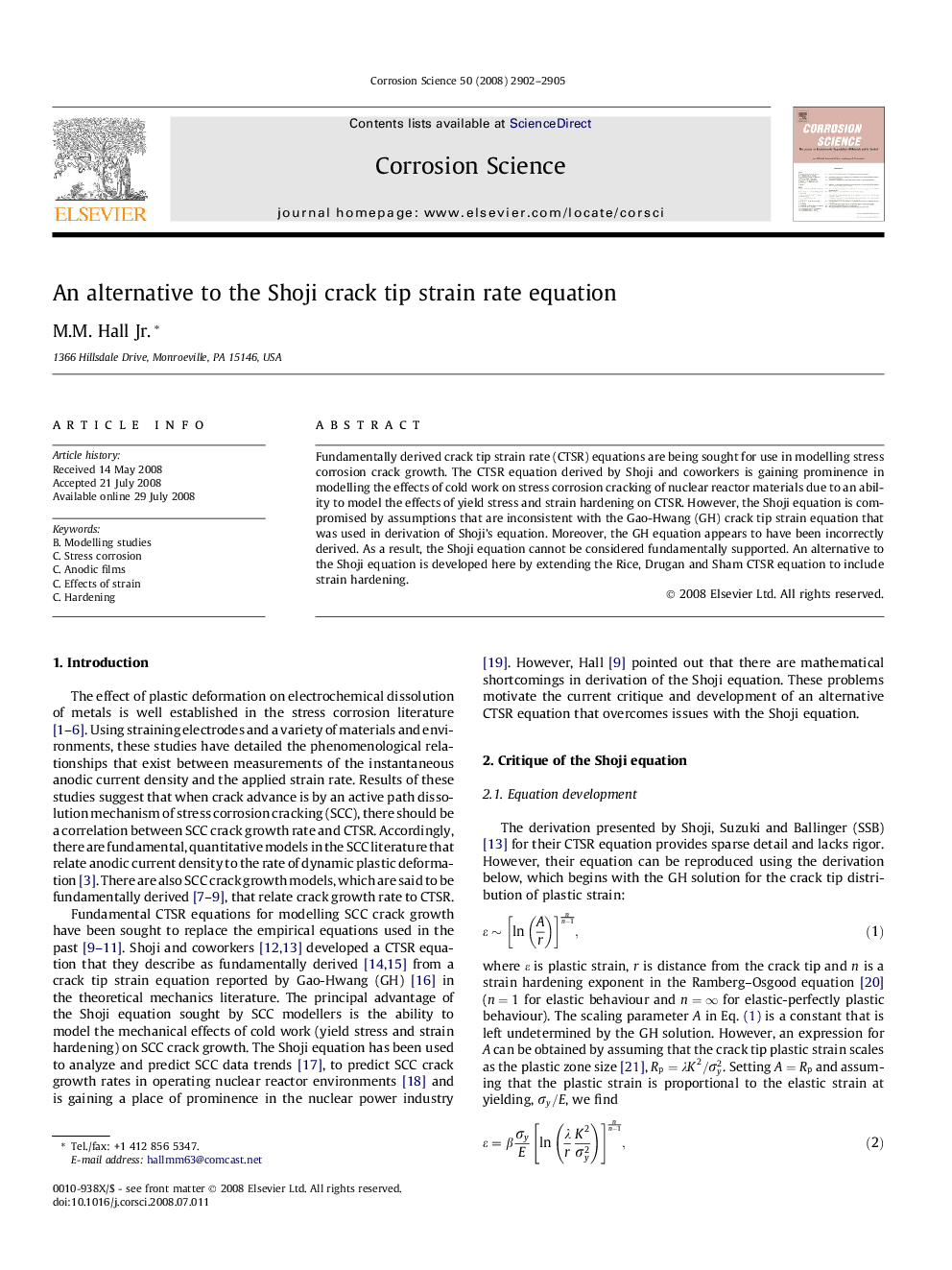| Article ID | Journal | Published Year | Pages | File Type |
|---|---|---|---|---|
| 1471486 | Corrosion Science | 2008 | 4 Pages |
Fundamentally derived crack tip strain rate (CTSR) equations are being sought for use in modelling stress corrosion crack growth. The CTSR equation derived by Shoji and coworkers is gaining prominence in modelling the effects of cold work on stress corrosion cracking of nuclear reactor materials due to an ability to model the effects of yield stress and strain hardening on CTSR. However, the Shoji equation is compromised by assumptions that are inconsistent with the Gao-Hwang (GH) crack tip strain equation that was used in derivation of Shoji’s equation. Moreover, the GH equation appears to have been incorrectly derived. As a result, the Shoji equation cannot be considered fundamentally supported. An alternative to the Shoji equation is developed here by extending the Rice, Drugan and Sham CTSR equation to include strain hardening.
